All of us outdoor types—the nature lovers, bird watchers, summit-fevered sun worshippers, moon goddesses, trail runners, thru-hikers, casual campers, eyes-to-the-horizon, honest-to-goodness everyday adventurers—we’re all looking to get out of dodge and go camping.
And what are we supposed to do now that summer’s here, still in the midst of a pandemic? I’ve been polling my friends and it’s a mixed bag. Some of them bolted for the open road as soon as stay-at-home orders lifted. Others are still nervous about risking recreation. I personally feel strung between the two sides, and it’s driving me bonkers. I’m itching for the mountains. On the other hand, I want to be responsible. If managing risk in the backcountry has taught me anything, it’s that a conservative approach is always, always, always the right way to go.
I honored my caution for about three months and stayed within biking distance from my apartment, but the issue came to head a few weeks ago. I turned stir crazy enough that I started dreaming in thru-hikes. Finally, after a research bender including calls to ranger stations, consults with co-workers and other outdoor professionals, nonprofits and stewardship groups, I came to my conclusion.
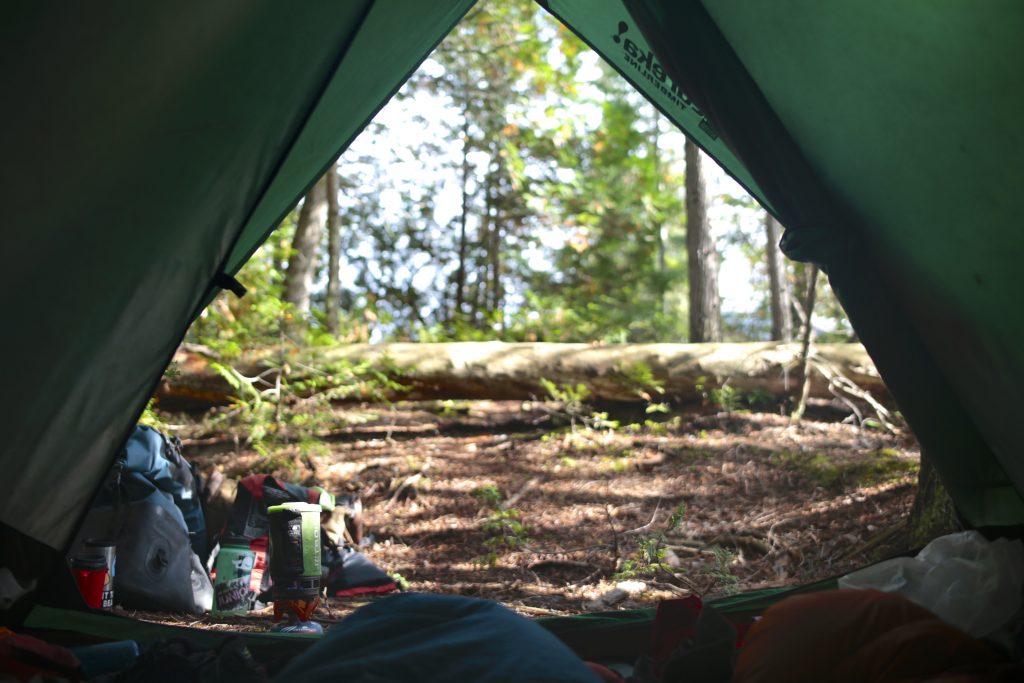
Photo by Jesse Swedlund
It. Is. Time. To. Camp.
State campgrounds are opening and federal lands are close on their heels. If you think it through and plan accordingly, it’s completely reasonable to get out and get camping. Just don’t be a jerk about it. How, you ask?
Have no fear; I’m here to bestow upon you the wisdom I’ve gained in the last three weeks, born of a deep and persistent anxiety mitigated solely by a penchant for research and commitment to the Outward Bound ethic of social responsibility.
Here’s your guide to the ethical etiquette of camping in the time of COVID.
Check LOCAL Guidelines
While CDC guidelines are important to keep an eye on, when it comes to traveling responsibly, think small. Go as close to the source as you can for your information. State and county—especially county—guidance should be your go-to. You can look up county and municipal websites for up-to-date Coronavirus case rates. Are they on the rise? Have officials asked people to refrain from coming and going? Or, on the flip side, is the county you’re headed to applying for relief from restrictions? Are they re-opening restaurants or tourist activities? All of that information can serve to help you make a responsible decision on whether or not to travel to a particular area.
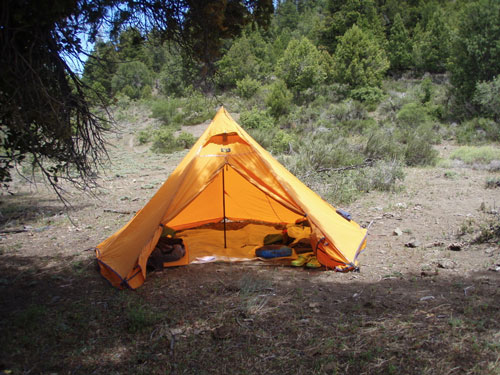
Be sure to check information from your local state and county before you head out camping.
Have a Back-Up Plan
For backpacking trips or if you’re planning to stay in a first-come-first-serve area with dispersed camping, it’s a good idea to have multiple spots to check out just in case your first choice is already taken. Consider staying close enough to home so if your intended camp spot is crowded or overbooked, you can still bail. For designated campgrounds, make reservations ahead of time.
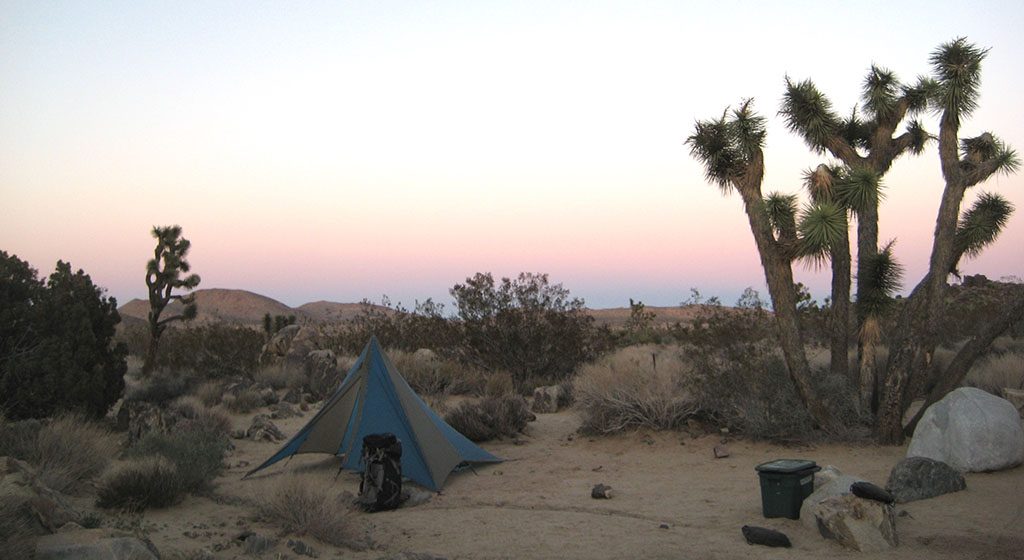
Consider staying close enough to home so if your intended camping spot is crowded or overbooked, you can still bail.
BYO Everything
TP, trash bags, cleaning supplies and portable squatty potties are encouraged. There’s no telling what services will be available and it’s best to minimize contact anyway. Get familiar with WAG bags, friends. Pack it in, pack it out.
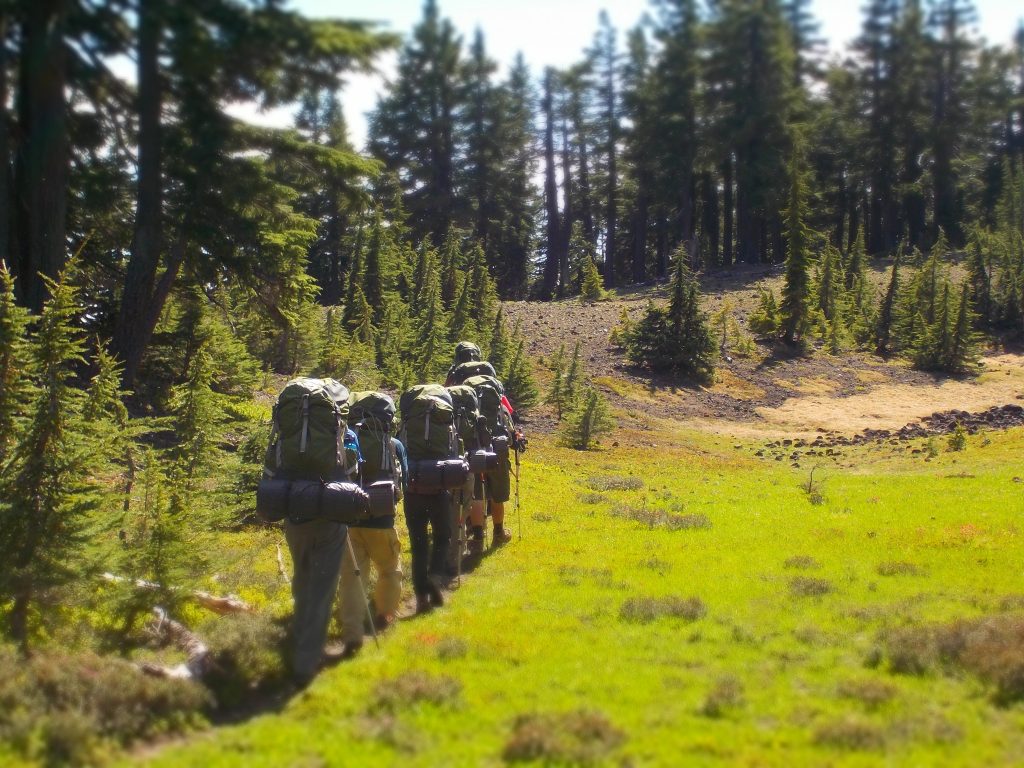
TP, trash bags, cleaning supplies and portable squatty potties are encouraged for you to bring when going camping.
Camp with Ample Space Between You and Other People
Perhaps this goes without saying, but don’t put your tent on top of a stranger’s. Keep about two car-lengths between you and other camps; more if you can swing it.
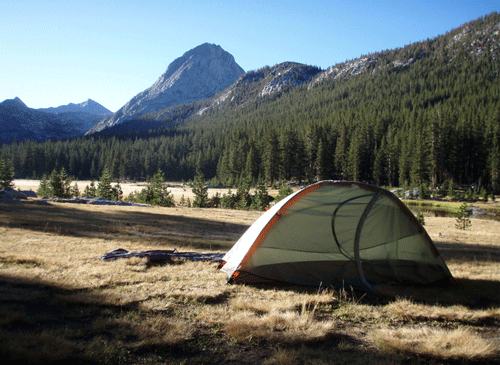
Keep about two car-lengths between you and other camps.
Wear a Mask When Utilizing Communal Utilities
If you’re staying in a campground with services or communal spaces, treat those spaces like you would a business or restaurant. Wear a mask or face covering when using or waiting for things like water spigots, restrooms and showers (assuming those services are open for use).
And be sure to keep a mask or bandana handy at all times so you can pull it up if you need to have extended contact with someone.
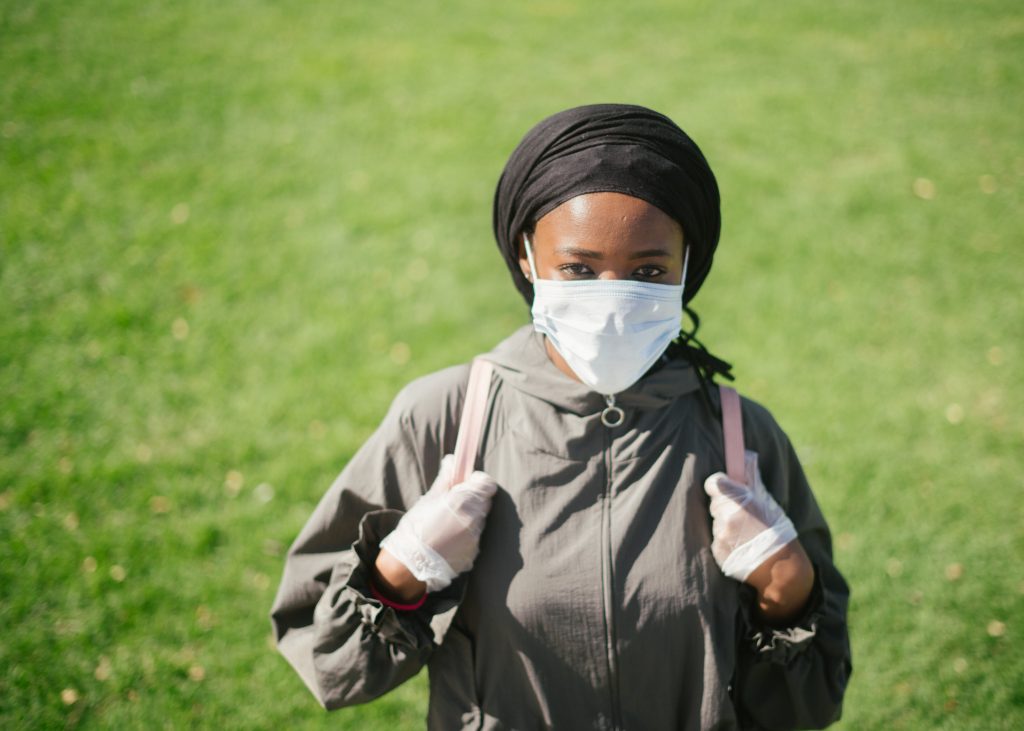
Keep a mask or bandana handy at all times so you can pull it up if you need to have extended contact with someone.
Chat From a Distance
For me, one of the greatest joys of hiking and camping is bumping into people I would never meet otherwise. I feared COVID would rob me of that joy, but I’m happy to report that’s not the case. You’re still allowed to talk to people! Just do it from a healthy distance. Of course, the CDC recommendation is six feet, but that’s if you have a mask on. If you’re stopping on the trail for a quick hello or chatting with someone in the next camp over, give it a solid 12 or 15 feet, and keep the conversation short.
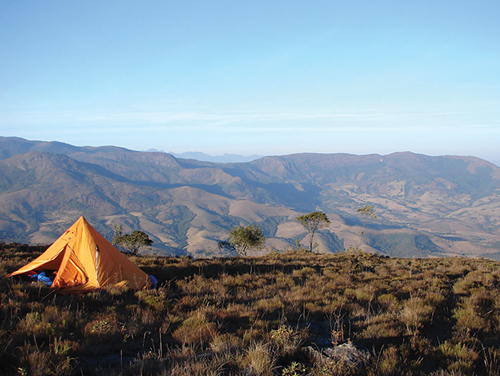
If you’re stopping on the trail for a quick hello or chatting with someone in the next camp over, give it a solid 12 or 15 feet, and keep the conversation short.
Respect the Social Signals You’re Receiving
Outward Bound teaches us to meet everyone on their level. While you may feel safe and confident, another person may be quite worried about their camping trip. Of course, it’s difficult to discern someone’s comfort level or tolerance for risk just by looking at them, but there are easy signals to pick up on. If someone is pulling up a mask or tensing as you approach, give them extra space.
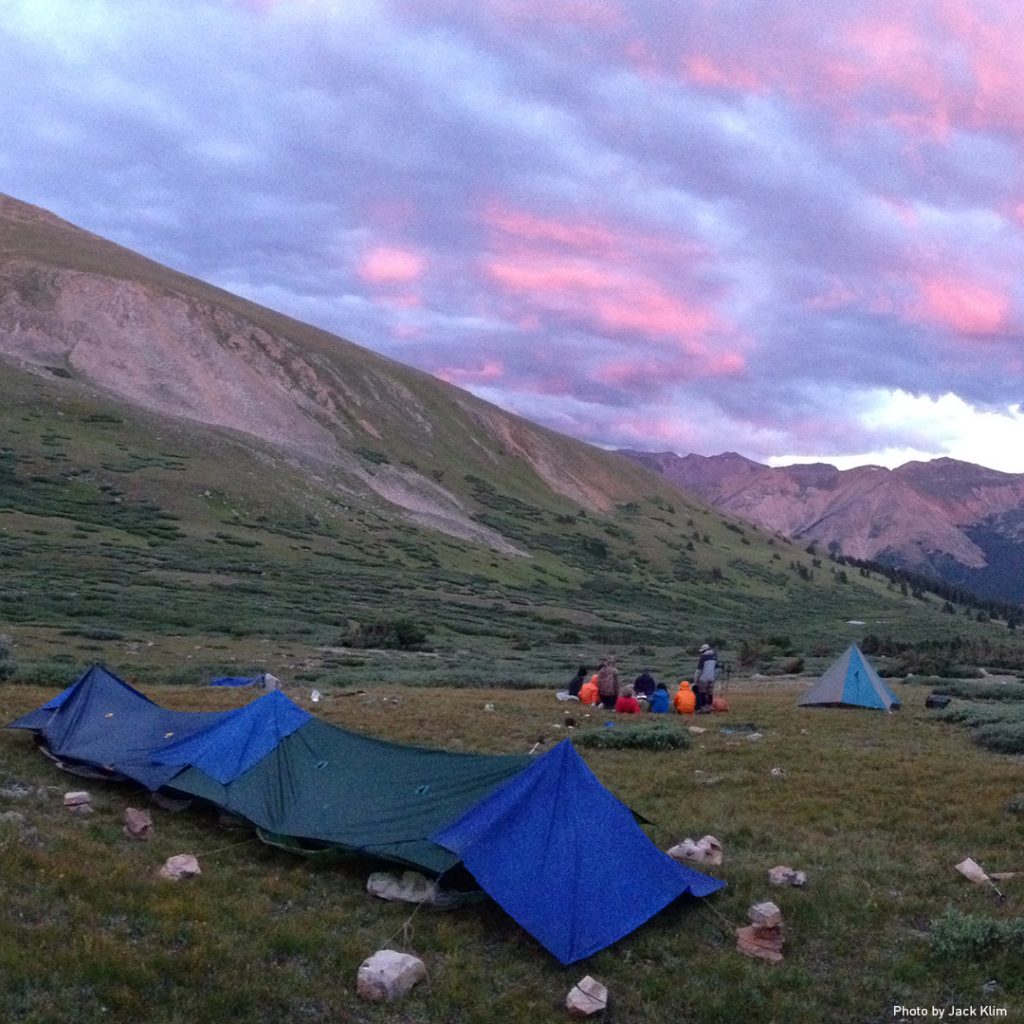
Another person may be quite worried about their camping trip, so keep that in mind when interacting with any strangers outside of your household.
No Big Groups
I’ve seen the gifs and I relate—I’m going to bust down some doors, sob, hug and sprint across great distances as soon as I’m allowed to see my friends again. But, we’re just not there yet. Camping is a reasonably safe compromise—something you can share with friends while maintaining some distance, but you should still treat buddies like you would anyone else outside of your household. Keep your tents and cooking areas separate, and maintain considerable space between you and friends while hanging out or hiking.
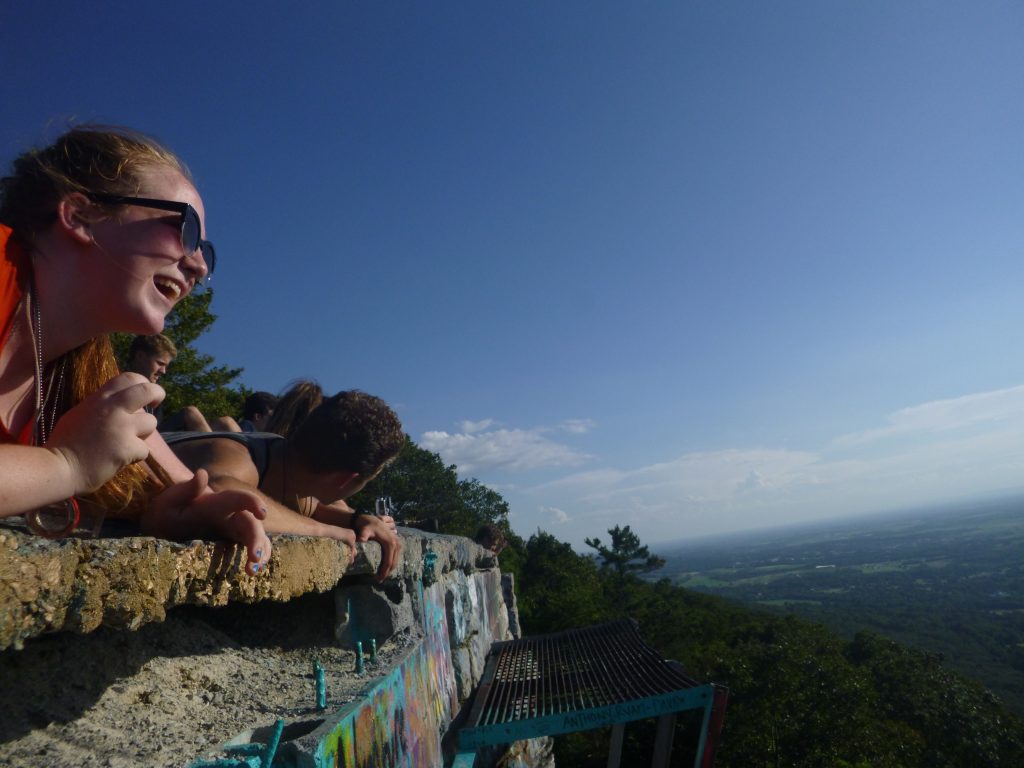
Keep your tents and cooking areas separate, and maintain considerable space between you and friends while hanging out or hiking. Photo by Kevin Neff.
Enjoy Yourself!
If, like me, you consider the outdoors your sanctuary, then take these precautions, follow this etiquette and get out there. And then you know what? Have yourself a little solo party to celebrate. Other campers will sense your gratitude, regardless of distance, and that, my friends, is the real breath of fresh air.
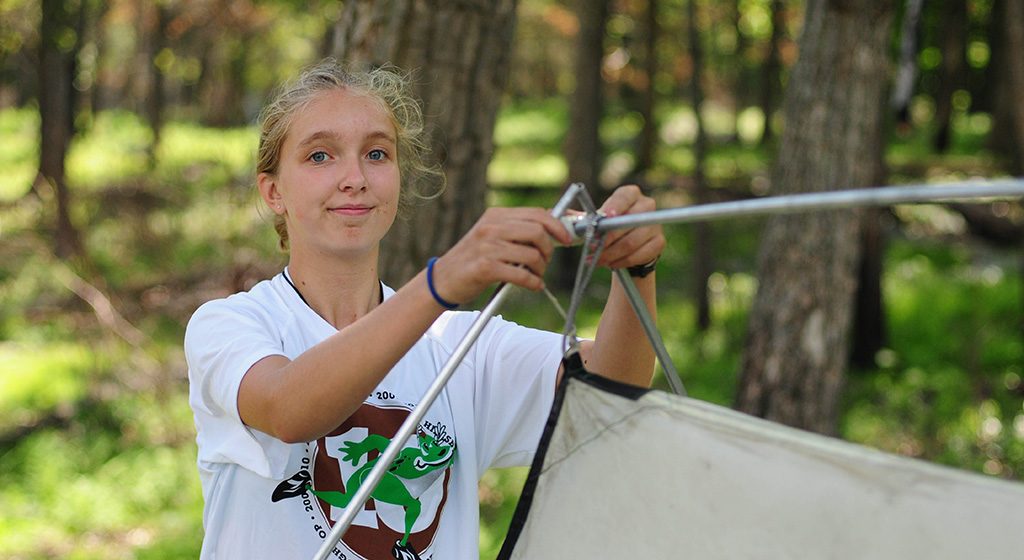
Photo by Michael DePrima
About the Author
Kate is a logistics coordinator for the Rocky Mountain Program at the Colorado Outward Bound School in Leadville, Colorado. She holds an MFA from the University of Montana and currently splits her time between working in the high country and relaxing in Denver, where she walks her sister’s dog and eats her parents’ food.
OTHER POSTS YOU MAY LIKE
Read More
Read More
Read More




